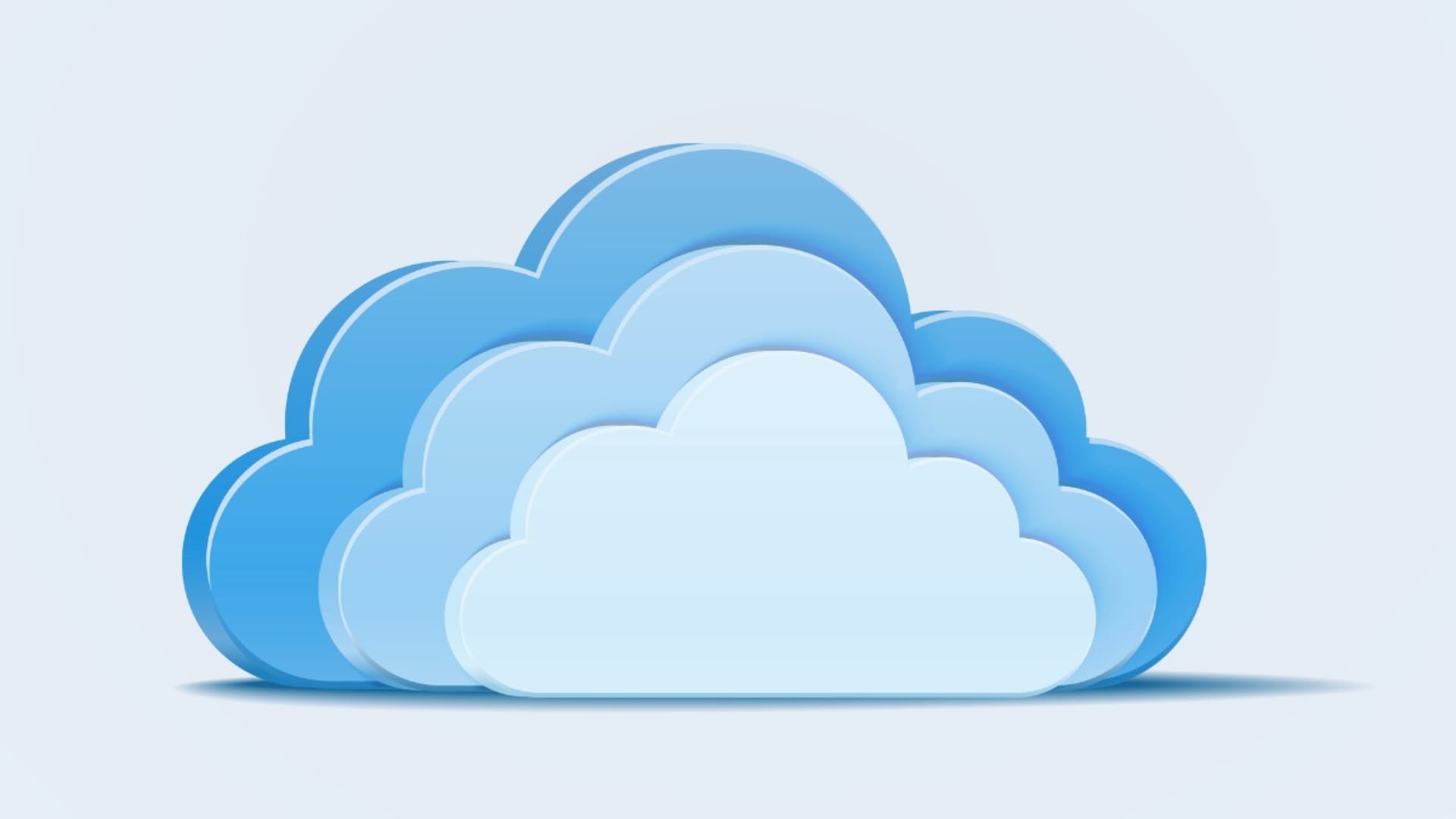Cloud Application Development Company
Access the top 1% of LATAM tech talent within 2 weeks. Deliver flexible solutions for managing and retrieving content from practically any location.
500+ companies rely on our top 1% tech talent.
Cloud Application Development Services We Provide
Custom Application Development
Cloud-native environments offer businesses efficiency and scalability. With custom cloud application development, you can optimize processes and enhance collaboration.
Our experts tap into cloud technologies and platforms to build custom cloud solutions. They include AWS Lambda for serverless computing, Kubernetes for container orchestration, Amazon S3 for scalable object storage, and AWS Identity and Access Management (IAM) for access control and encryption protocols.
Cloud Migration
Cloud migration moves existing applications and infrastructure to the cloud on platforms like AWS and Azure. This allows businesses to embrace a more flexible and scalable IT environment.
We help you harness the full potential of these cloud platforms by assessing your existing systems and migrating workloads. AWS Server Migration Service automates server migrations, AWS Database Migration Service and AWS Snowball move databases, and AWS Migration Hub centralizes tracking. We also use tools like CloudEndure to ensure a smooth and secure migration process.
Cloud Infrastructure Management
Cloud infrastructure is the backbone of modern businesses, providing the foundation for flexible and efficient IT operations. Managing the infrastructure is important for making the most of cloud resources, ensuring security, and maximizing the performance of cloud applications.
We use technologies like AWS CloudFormation for infrastructure as code (IaC) and Google Cloud Deployment Manager to automate resource management. We also leverage cloud-native management services like AWS CloudWatch and Azure Monitor.
Cloud Deployment
Cloud deployment is a critical part of making cloud applications accessible to users over the internet. It also improves the scalability of cloud infrastructures.
Our developers utilize tools like AWS Elastic Beanstalk for easy application deployment and scaling, Azure App Service for seamless deployment on Azure, and Google App Engine for building and deploying applications on Google Cloud. We also implement continuous integration and continuous deployment (CI/CD) pipelines.
Software Integration
Software integration enables seamless communication and collaboration between various software applications and systems. Integration ensures the efficient flow of data so organizations can leverage the full potential of their technology stack.
We connect and synchronize software applications with integration platforms like MuleSoft, Apache Camel, and Dell Boomi. We also prioritize the security of data in transit by implementing measures like OAuth for secure authentication and data encryption.
Cloud Support and Maintenance
Cloud support and maintenance ensure the ongoing efficiency, security, and reliability of cloud-based applications. Proactive management and the timely resolution of issues are crucial for businesses to maximize the benefits of cloud investments.
We use performance-monitoring tools like AWS CloudWatch and Azure Monitor to support cloud operations. We also automate management with solutions like AWS Systems Manager and Azure Automation.
SiriusXM case study
SiriusXM partnered with BairesDev’s highly skilled engineers to design and deploy a new AWS-based architecture and afterward securely migrate their apps to the cloud. SiriusXM Case Study.

Key Things to Know About Cloud Application Development
Best Practices for Cloud App Development
Gain a thorough understanding of various cloud service models to choose the most suitable one.
Design applications with scalability in mind, ensuring they can handle increased demand effortlessly.
Embrace a microservices architecture to enhance flexibility and speed in development.
Make security a top priority throughout the application's design process.
Ensure the design includes resiliency and redundancy to handle potential failures gracefully.
Leverage cloud-native services to maximize the benefits of the cloud environment.
Put significant emphasis on API design for seamless integration and interaction with other services.
Consider adopting multi-cloud and hybrid cloud strategies for greater flexibility and risk mitigation.
Implement DevOps practices to enhance collaboration, efficiency, and speed in development and operations.
Automate processes wherever possible to reduce manual errors and increase efficiency.
Focus on optimizing resources to manage costs effectively without compromising performance.
Ensure strict adherence to data governance and compliance standards for data security and privacy.
Regularly monitor and log application activities to detect and address issues promptly.
Stay updated with the latest cloud innovations to continuously improve and modernize the application.
Always prioritize user experience, ensuring the application is user-friendly, responsive, and reliable.
Why Choose BairesDev for Cloud Application Development

Flexible Engagement Models
Our flexible engagement models, combined with our expertise in cloud-based solutions, enable you to deploy scalable and secure applications in the cloud. We offer engagement models that adapt to diverse project requirements, whether you're looking for dedicated teams, staff augmentation, or end-to-end software outsourcing.
Top 1% of Tech Talent
Our cloud developers are within the top 1% of tech talent. Since our inception, we’ve prioritized a strategic selection process to assemble teams of highly skilled and proficient developers. Our experts are well-versed in cloud application technologies like Kubernetes, Docker, and serverless computing within cloud platforms like AWS, Azure, and Oracle.
Robust Security Measures
We ensure data protection and system integrity by employing advanced technologies like AWS Identity and Access Management (IAM), Azure Active Directory, and Access Management (IAM). Our commitment to security not only safeguards sensitive data but also instills confidence in our clients, which has positioned us as a trusted partner for cloud applications for over a decade.
FAQs
What are the types of cloud services?
Cloud services generally fall into 4 main categories:
- Infrastructure as a service (IaaS) provides instant computing infrastructure over the internet. The IaaS provider maintains and updates the infrastructure while you focus on managing the software running on it.
- Platform as a service (PaaS) is a step beyond IaaS. It provides the same infrastructure (servers, storage, and networking) over the internet but adds middleware, development tools, BI services, and more. It's ideal for companies that want to manage the applications they develop while the cloud provider handles the infrastructure.
- Software as a service (SaaS) encompasses IaaS and PaaS services and adds ready-made cloud-based apps over the internet. In other words, using SaaS means that you pay to use an app developed by a third party that runs on the cloud. The provider is responsible for the underlying infrastructure and middleware while you focus on using the software.
- Serverless services are similar to PaaS services in that they provide everything you need to develop cloud-based applications, including infrastructure and development tools. However, serverless services are more agile and scalable but provide less control over the development environment.
What are the types of cloud computing?
There are 3 different types of cloud computing models:
- The public cloud delivers resources through the internet across different organizations.
- The private cloud is a model in which the cloud is strictly devoted to the needs and requirements of your organization.
- The hybrid cloud combines the public and private cloud models with the aim of overcoming their drawbacks.
What are the benefits of cloud computing?
Cloud computing offers numerous benefits, such as scalability, flexibility, accessibility, disaster recovery, improved collaboration, resource optimization, and greater agility.
What's the difference between web and cloud applications?
While web and cloud applications function in similar ways, they have different architectures. Cloud-based applications operate within a cloud environment but process tasks on a local device. There is no need for an internet connection while you're using the app—just when you're uploading or downloading data. Web applications, in contrast, must always be connected to the internet to work. That's because software is constantly being downloaded from the internet when the app is running. In other words, cloud apps can work when you're offline, while web apps can't.
How does cloud computing affect data privacy and security?
Cloud technology offers many benefits, but it can affect data privacy. It's critical to understand and mitigate the risks associated with storing sensitive data on the cloud. Ensure that the provider you choose offers robust cloud security tools, implements data encryption and user access controls, and complies with data regulations in your areas of operation. Additionally, evaluate the mechanisms they have in place for detecting data breaches and cyber-attacks and resolving problems before they escalate.
How does cloud computing impact business and IT operations?
Cloud computing changes how businesses manage business and IT operations. It offers benefits like cost savings, greater efficiency, security, scalability, flexibility, and disaster recovery mechanisms.
What's the difference between cloud computing and traditional web hosting?
Cloud computing and traditional web hosting are two different digital solutions for offering computing services. Cloud computing is a more flexible and scalable model, while traditional web hosting is less scalable, flexible, and accessible. Scaling a traditional hosting model typically requires physical hardware manipulations.
What is cloud migration?
Cloud migration is the process of moving operations to a cloud environment. This involves transferring data, IT processes, and applications to the cloud from physical hardware or other cloud environments.
How do I choose a cloud app development company?
There are many factors to consider when choosing a cloud app development company, such as the provider's reputation and portfolio, experience in your niche, and key specializations. It's also important to consider your project requirements and the type of engagement model you need. We offer three engagement models: staff augmentation, dedicated teams, and end-to-end software outsourcing.
How Businesses Can Overcome the Software Development Shortage
BairesDev Ranked as one of the Fastest-Growing Companies in the US by Inc. 5000

See how we can help.Schedule a Call









